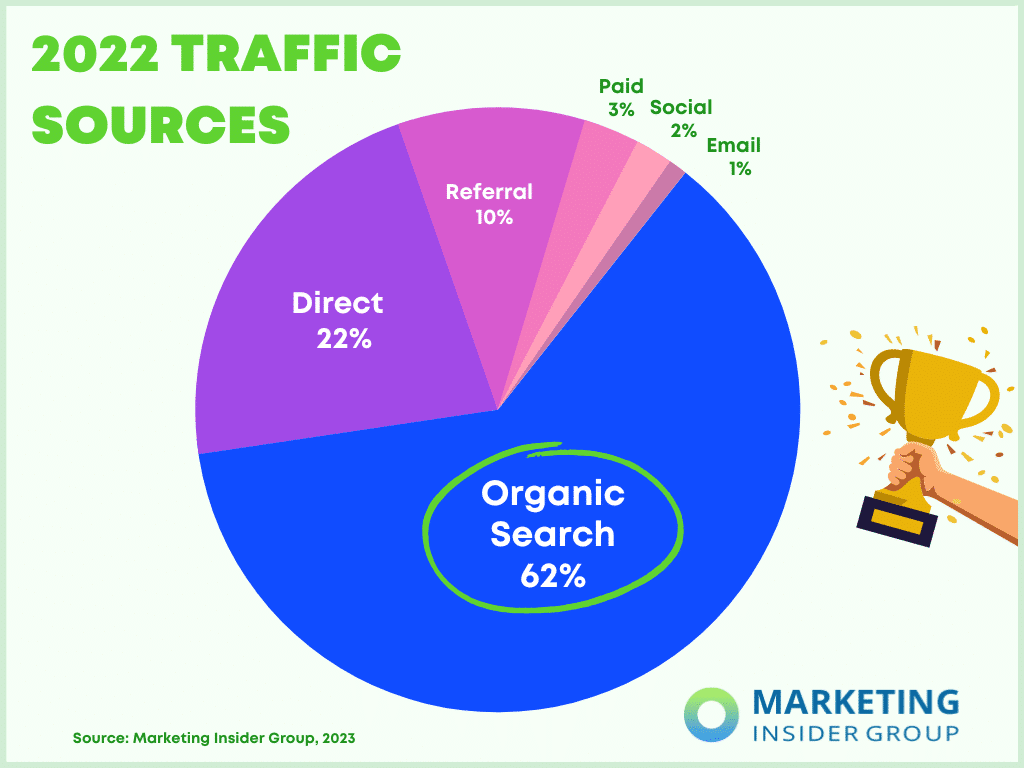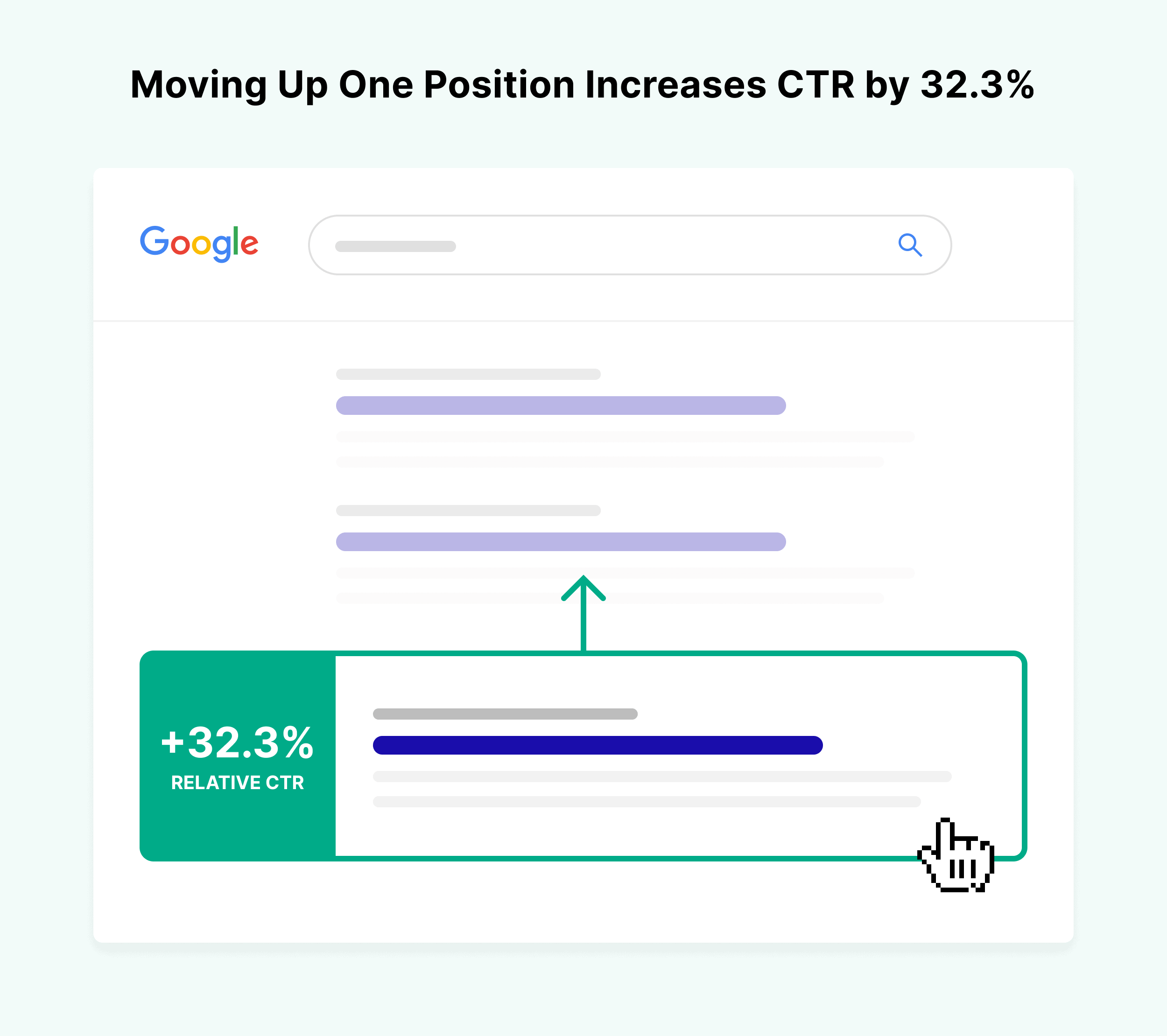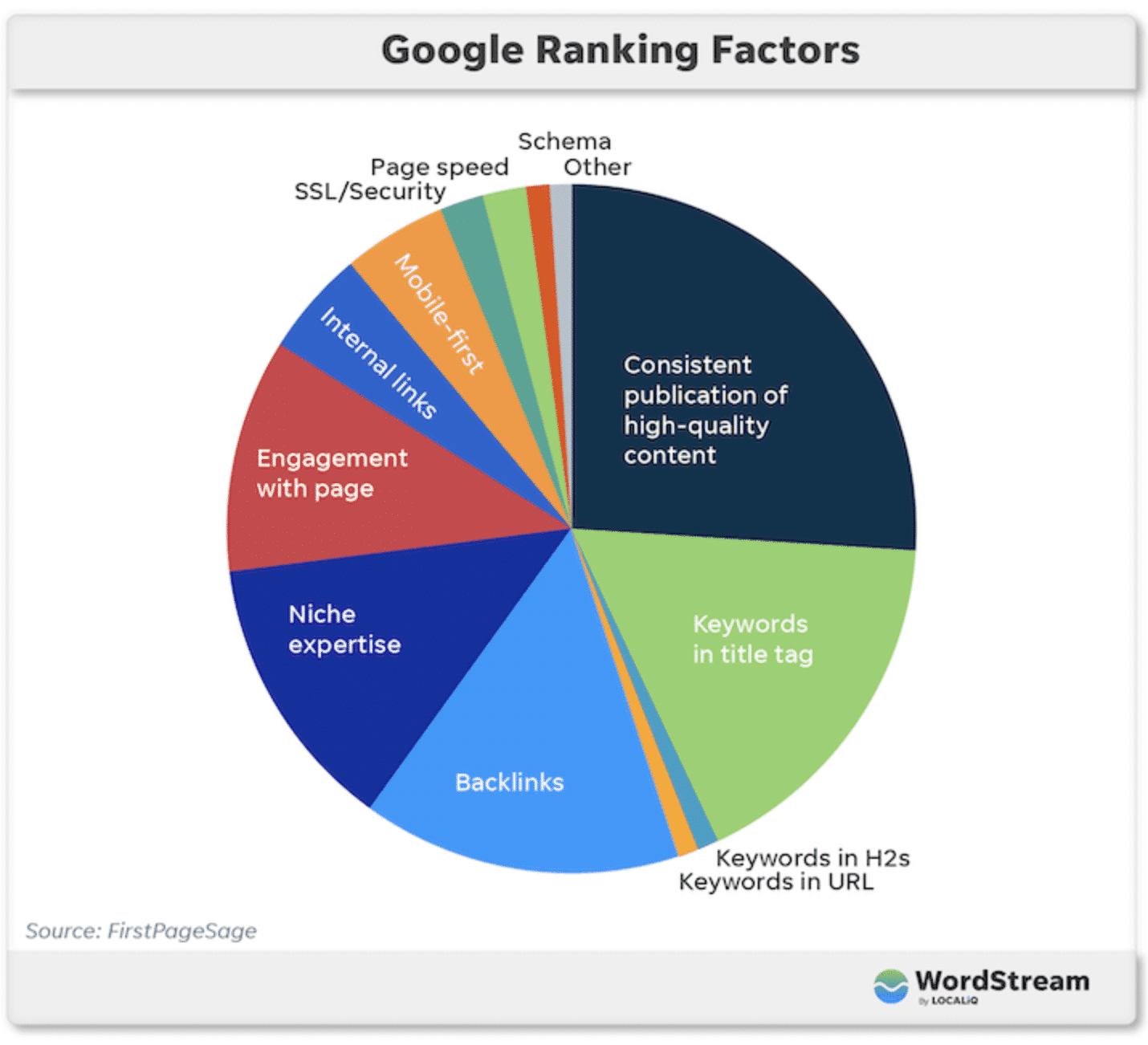
Why You Need SEO For Long-Term Marketing Success
Great marketers are always on the hunt for the next big thing. The allure of new strategies, innovative tools, and cutting-edge technologies is undeniable. They promise to revolutionize our performance, to catapult our content to the top of the digital heap, and to keep us one step ahead in the race for online visibility.
Yet, there’s one strategy that remains steadfast in both its importance and its ability to deliver results: Search Engine Optimization, or SEO. It’s not the shiniest tool in the box, nor the newest. But it is, without a doubt, one of the most effective.
SEO is the compass that guides our content to its intended audience. It’s the tried and true strategy that, despite constant changes in the digital marketing landscape, stands the test of time.
In this blog post, we’re diving into the importance of SEO for content marketing, exploring why it remains a vital strategy for long-term success, and why every content marketer should be taking advantage of its power.
Quick Takeaways
- SEO helps businesses build trust and credibility, increase web traffic, gain visibility, and understand customers.
- The first spot on Google’s SERPs gets 27.6% of all clicks, and moving up just one spot in search results can increase CTR by a staggering 32.3%.
- SEO produces greater returns on your investment over time. It leads to exponential growth in search ranking, readership, referral traffic, and visibility.
- Hiring an SEO agency can provide businesses with an integrated approach to content creation and SEO, save time, keep the business up-to-date with SEO rules, offer expert guidance, deliver better results, and give a competitive edge.
What Is SEO?
SEO, or Search Engine Optimization, is a method used to increase the visibility of a website or a web page in a search engine’s unpaid results.
These results are often referred to as “organic search”, and account for 62% of traffic from digital sources.

Let’s break it down a bit more. Imagine you have a library full of books but no librarian. SEO is like the librarian of the internet. It keeps track of all the content on the web and helps search engines like Google find what they’re looking for.
When you type something into a search engine, SEO helps decide which websites or pages should show up first. It does this by looking at many factors, like:
- Frequency of updated information
- Security
- Ease of navigation
- Quality of content
In simpler terms, SEO is a way of making your website more attractive to search engines, which can lead to more people finding and visiting your website. It’s a crucial tool for anyone who wants their website to be found and visited by more people.
Why You Need SEO
Get this: The first spot on Google’s SERPs gets 27.6% of all clicks, and moving up just one spot in search results can increase CTR by a staggering 32.3%.

Image Source: Backlinko
Simply put, SEO is like a spotlight that shines on your business in depths of SERPs, boosting your visibility, traffic, and engagement. It’s a non-negotiable strategy for businesses that want to be seen. Here’s why:
- Building trust and credibility. Just like in the real world, trust and credibility are important on the internet. When your website shows up at the top of search results, people are more likely to trust your business. SEO helps you get to the top, establish authority, and build trust and credibility.
- Increasing web traffic. The better your SEO, the more people can find and visit your website. This is called increasing web traffic, and it’s a great way to get more potential customers.
- Being visible. SEO helps your business stand out in the crowd. There are millions of websites on the internet. SEO makes sure that when people search for something related to your business, they find you instead of your competitors.
- Understanding your customers. SEO also helps you understand what your customers are looking for. By using SEO, you can see what people are searching for and adjust your products or services to meet their needs.
Optimizing your digital content for search engines helps people find you, trust you, and understand what you can offer them.
SEO Works Like Compound Interest
If you’ve ever taken a business course or talked to a financial investor, you may likely have learned about the principle of compound interest and how powerful it is. It’s one of the many reasons that explain the financial growth and success of some of today’s millionaires and billionaires.
How compound interest works is that, when earning a consistent interest rate, your principal–the amount of money you initially invest–will grow, and as your principal grows so will the interest you earn, and this ultimately creates a snowball effect producing greater returns on your investment.
The author of the MarketingProfs article Timothy Carter states that SEO works the same way, given the right strategy is implemented properly. For example, when you create a piece of content that adds value to your target audience and industry, and you have a good distribution strategy to get it in front of the right people, including high value prospects as well as influencers and popular sites for promotion and syndication, your content will earn hundreds (and even thousands) of:
- Reads
- Social shares
- Inbound links
- Quality leads
This piece of content will continue to earn new readers, links, visibility and sales for your company over time, and as you create more related content, you’ll see the same growth pattern. Carter argues that this is what differentiates SEO from traditional marketing and advertising tactics.
Take pay-per-click ads, for example, you spend a specific amount of money for a certain amount of clicks. If your return on every dollar you spend is two dollars, that rate will remain consistent over time. You may be able to increase it by making changes to your ad copy or adding a new channel for promotion, but ultimately you will hit a ceiling with your growth.
SEO, on the other hand, works like compounding interest and so your growth won’t hit a ceiling. While one could argue that other strategies like email marketing also share qualities similar to compounding interest, Carter claims that SEO has one mathematical reason that gives it a winning advantage over other strategies–its exponential growth in:
- Search ranking
- Readership
- Referral traffic
- Visibility
4 Benefits Of SEO That Other Marketing Strategies Don’t Have
1. Search Ranking
Relevant, valuable content will continue to earn links over time, regardless of when it is published. This in turn improves the ranking of the individual webpage, moving it closer to the first page of search results.

Image Source: WordStream
At the same time, any new content you subsequently create, which your audience finds relevant and valuable, will grow in a similar way. Together, all your content will help multiply growth in your brand’s total search rank.
2. Readership
Your readership will grow as you publish content more regularly and consistently and syndicate to popular, high traffic sites related to your industry. When you reach a level of popularity, you will start to see your readership grow exponentially simply as a result of your existing readership.
3. Referral Traffic
One of the many obvious benefits of creating relevant, valuable content is that it helps to reach, engage and ultimately convert your target audience. But another big benefit is that high-quality content helps you build inbound links.
The more inbound links you receive externally from authoritative websites in your space, the higher your content will rise in search results. And these external posts will continue to drive more referral traffic for you, even long past their publication.
As you build more inbound links, your website will rank higher in search engines, driving more awareness, traffic and readership to your site.
4. Visibility
As you continue to build relationships with more publishers and influencers and grow your social media following, your overall visibility in your industry will grow. You’ll also want to regularly track and identify any gaps and opportunities for improvement for each point of visibility, to ensure continuous, sustainable growth in the future.
These are just four of the many benefits you’ll see with developing a well-rounded SEO strategy. When combined with an effective content marketing and social media marketing strategy, you’ll see a much higher ROI than any other marketing strategies in the long haul.
Hiring an SEO Agency
Optimizing your website’s content for search engines is no easy task–especially if you have years of blog posts, case studies, and landing pages to sift through. That’s why in many cases, it’s best to leave it to the professionals.
Video Source: Casey’s SEO
Here’s why we recommend working with the experts:
1. Integrated Approach
Many SEO agencies also offer content creation services. This means they can help you create high-quality content that is optimized for search engines. An integrated approach ensures that your content and SEO strategies align, leading to better results.
2. Saving Time
Learning about SEO and applying it to your website can take a lot of time. By hiring an SEO agency, you can save this time and focus on other important parts of your business. This allows you to focus on what you do best, while the agency handles the SEO.
3. Staying Up-to-Date
The rules of SEO are always changing. What worked yesterday might not work today.
SEO agencies keep up with these changes and make sure your website is always ready to be found. They stay on top of trends and algorithm updates to ensure your website stays relevant.
4. Expert Guidance
SEO can be complex, like a puzzle with hundreds of pieces. An SEO agency has experts who understand how to put these pieces together.
They know how to improve your website so that search engines like Google can find it more easily. They understand the algorithms that search engines use and can tailor your website to meet these requirements.
5. Getting Better Results
An SEO agency uses proven strategies and tools to improve your website’s visibility. This means more people can find and visit your website, which can lead to more customers.
They also monitor and track your website’s performance, providing you with detailed reports on how your SEO is working.
6. Competitive Edge
With so many businesses online, standing out can be tough. SEO agencies help give your business a competitive edge by ensuring your website ranks high in search results.
This increases the chances of potential customers finding you before they find your competitors.
Lock In Long-Term Success Today with Marketing Insider Group
SEO isn’t just a strategy–it’s an essential tool for long-term success. It helps build trust and credibility, increases web traffic, and gives businesses a competitive edge.
By hiring an SEO agency, businesses can leverage professional expertise to navigate the complex landscape of SEO, making sure their content is seen, heard, and valued.
Are you ready to engage and convert new customers with high-quality content? Marketing Insider Group can help. Get started today by checking out our weekly blog content service, or schedule a free consultation now to learn more!







Hi Michael, agree that creating content and then distributing it to relevant content platforms around the web, including repurposing it into different media, is one of the best investments you can make in the future success of your business.
The benefits aren’t limited to SEO. You’re also benefiting from the viral potential some of these sites have to build exposure for your content within their own captive audiences and through your own network on them. Content on Quora for example can readily gain hundreds of views within just a few hours, same goes for YouTube, Medium, etc.., and engagement levels can be a lot higher than you might otherwise achieve with the same content on your own blog.
And then you have more content to share on social and keep in front of your market, more opportunities to attract social followers… it’s a virtuous cycle of increasing benefits.
Thanks for the thought-provoking article.